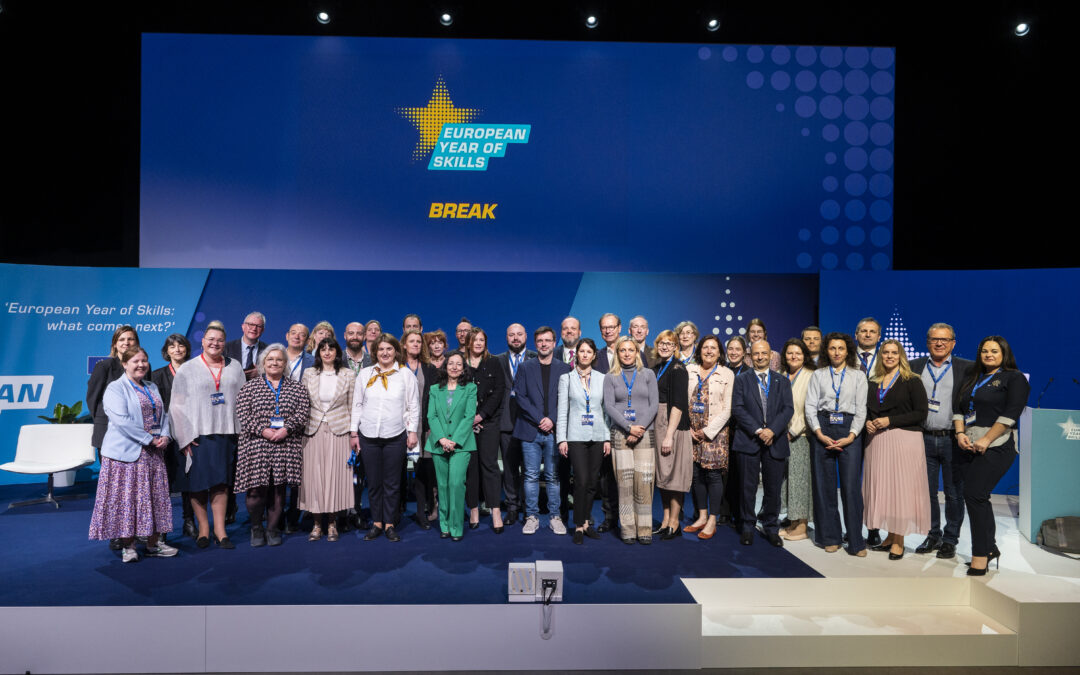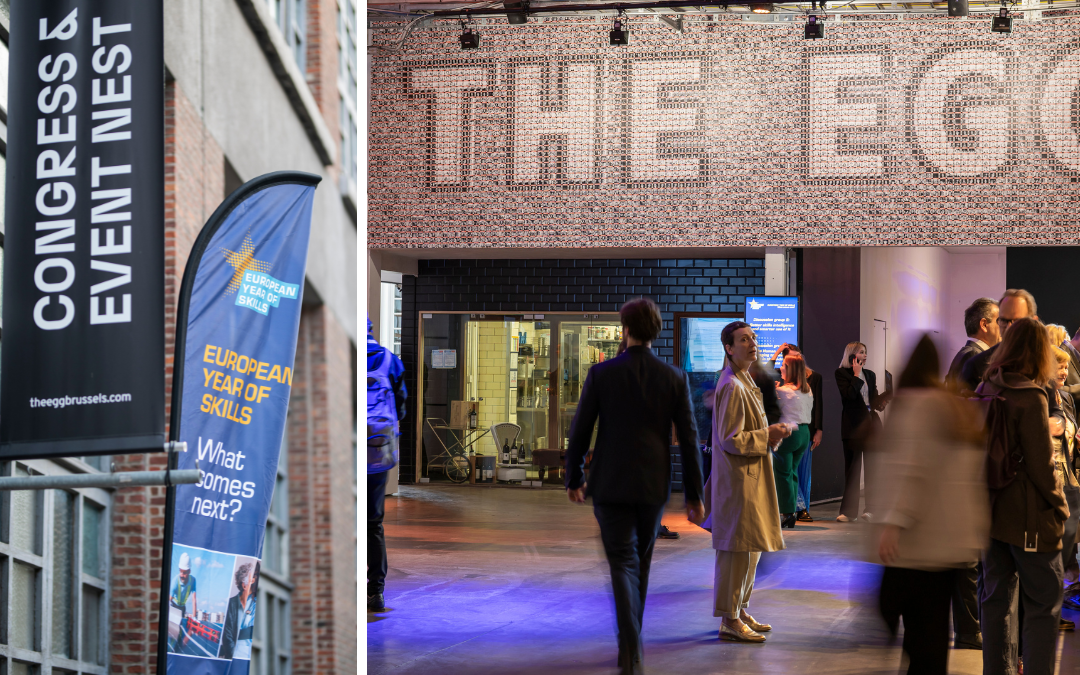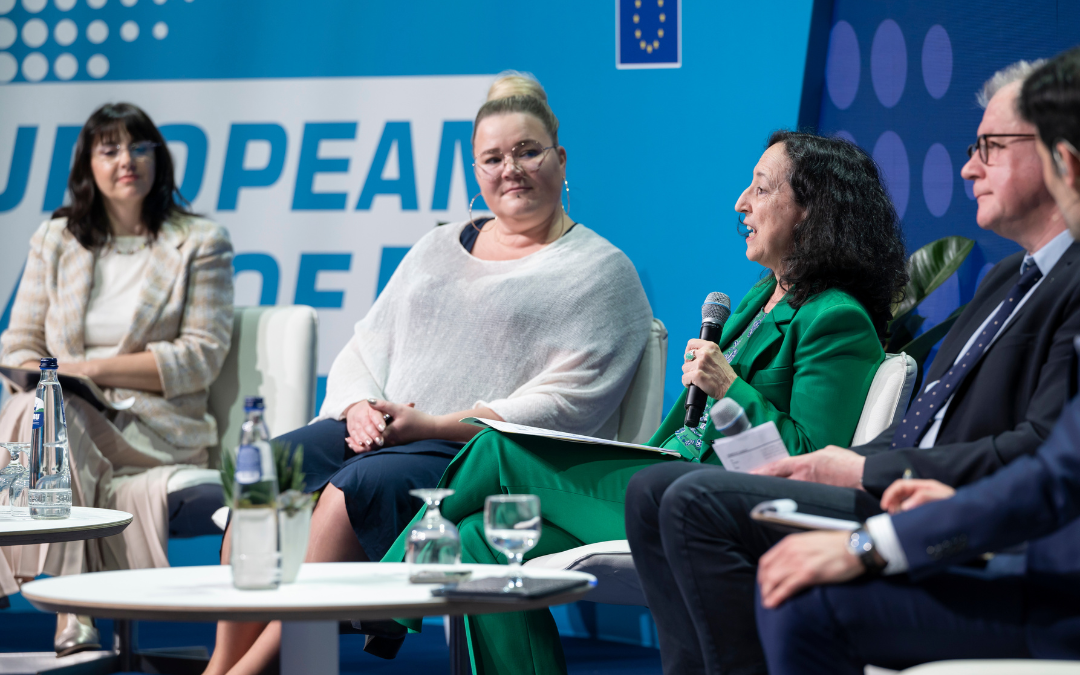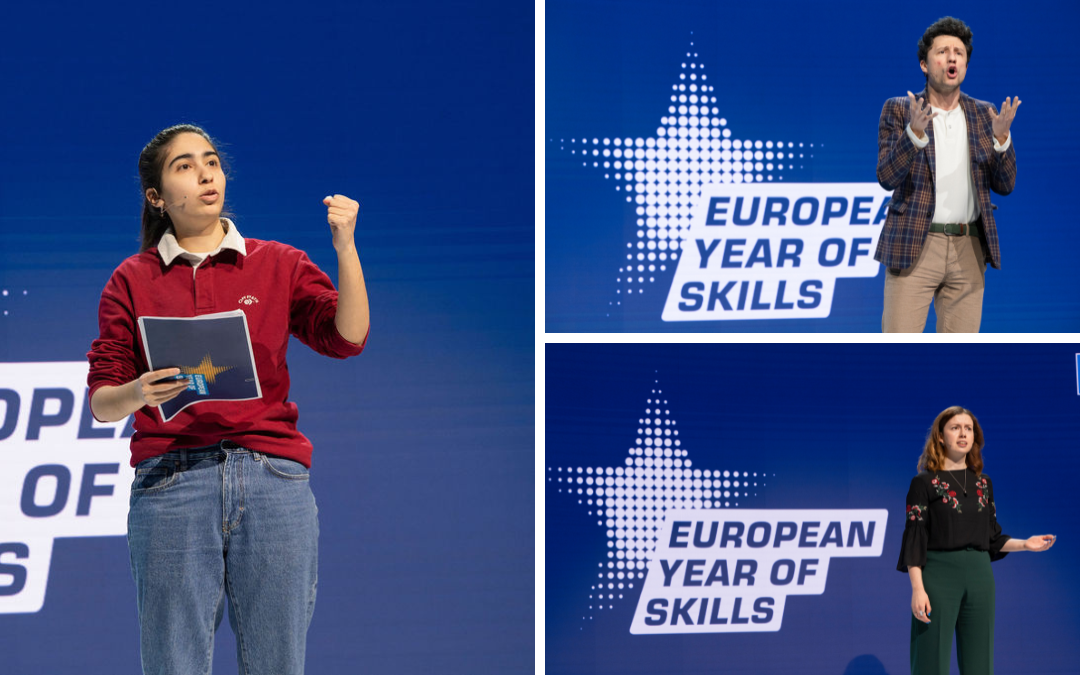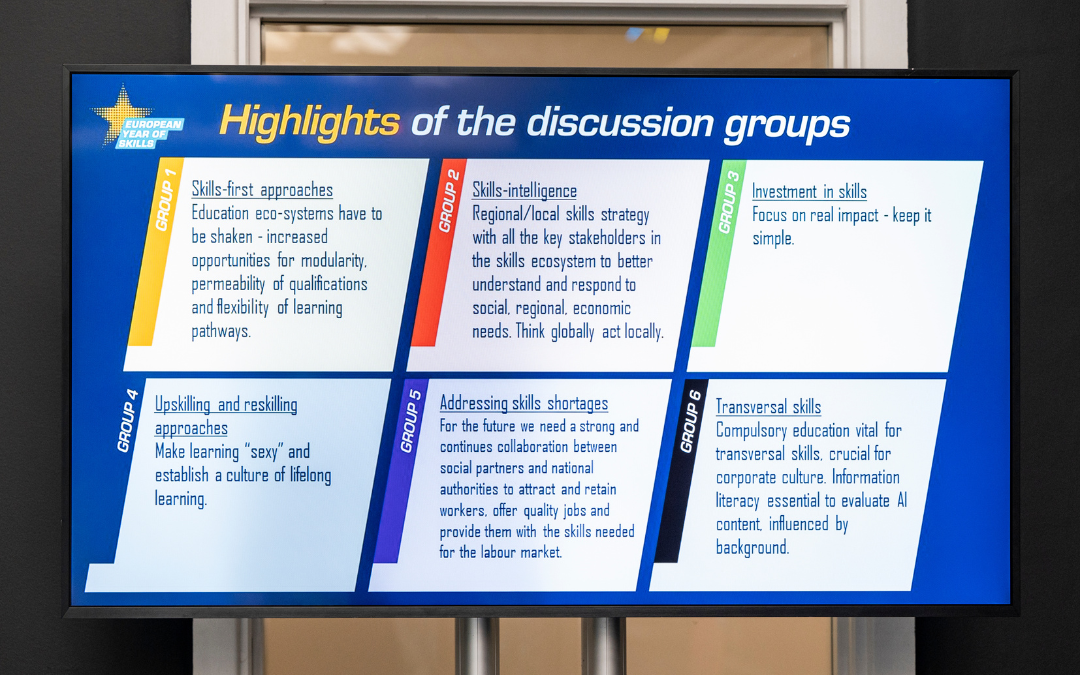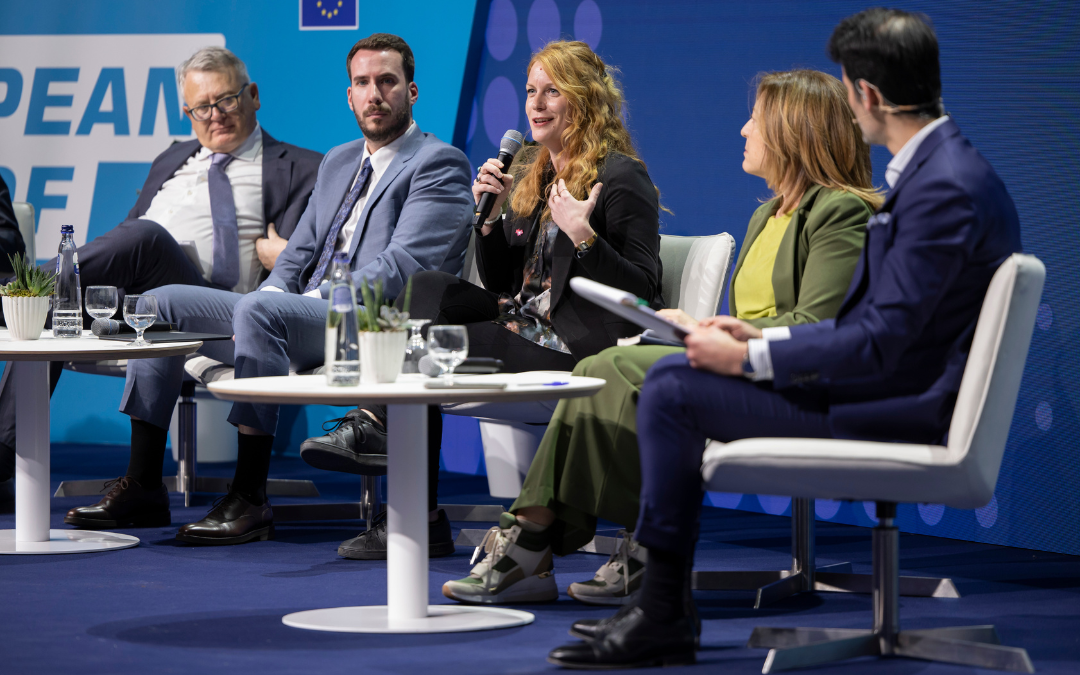“How do we move forward?” is the question posed in the title of this celebratory and substantive event. The future, and even before that, the achievements of the EYS were discussed in three panels and six working groups by prominent representatives of policy, profession and practice from across Europe.
The EYS legacy is also the final declaration of the EYS National Coordinators
The first panel consisted of EYS National Coordinators from Belgium, Bulgaria, Finland, France and Spain. Some reported on improved cooperation between the Ministries of Employment and Education and urged that other departments also join efforts to ensure the much-needed skills. Others highlighted the increased support received under the EYS for implementing individual learning accounts (France), micro-credentials and other incentives to develop skills and competencies (Bulgaria and Spain). They emphasised the growing need to ensure the quality of education programmes. Representatives of the Belgian presidency referred to the final declaration of the national coordinators on EYS, which, among other things, underlines the need for labour market inclusiveness.
Adequately trained workers and competent, critical-thinking citizens
Both need to be trained, according to the members of the second panel, which brought together representatives from European networks and platforms. These included the European Network of Public Employment Services, the European Forum of Technical and Vocational Education and Training, the European Construction Industry Federation, the European Apprentices Network, the European Lifelong Learning Platform and the Danish State Railways Administration.
Their discussion was entitled EYS as a Springboard for the Skills Revolution. The mentioned networks reported that they had utilised the EYS to give new impetus to their missions. Surprisingly, there was much discussion about holistic approaches, soft and transversal skills and empathy, as well as awareness-raising, motivating, guidance and outreach of target groups. They highlighted the validation of existing knowledge and the adaptation of educational programmes to learners’ needs as the right path, especially in circumstances where the shortage of appropriately skilled labour is critical. The most impressive was the Dane Per Schrøder, Executive Vice President of Operations of the Danish State Railways, who achieved remarkable results in recruiting and training staff for the Danish railways. His recipe is to recruit based on the candidate’s attitude and approach to work, only then followed by training for specific professional skills.
The spotlight was on two aspects
The Pact for Skills is an EC initiative that supports public and private organisations in reskilling and upskilling. It also provides them with financial mechanisms for a successful digital and green transition. Partnerships are established in regions and sectors. We heard examples from the fields of renewable energy sources and agricultural innovations, with a focus on water management.
The other short presentations concerned the European Training Foundation and CEDEFOP. The former operates outside the EU, while the latter conducts research and monitors and forecasts developments in employment and education in Europe. Both institutions contribute to progress and greater efficiency in skills provision policymaking.
After lunch, for a surprise and inspiration, the organisers arranged performances by three so-called slam poetry performers from Austria, Ireland and Slovenia (Matic Ačko). Through rhymes, they expressed their experiences and attitudes towards skills compellingly and fascinatingly.
Lively interaction in discussion groups
Those of us who attended the event in person discussed key topics of the EYS and their future in six working groups. The exchange of views was dynamic, based on our diversity, yet we found many common points. For example, we agreed on the necessity of establishing a culture of lifelong learning, further collaboration between social partners and government authorities, and the implementation of regional and local strategies for skills development.
Slovenia was also represented in the final panel. Tea Jarc, elected in the previous year as the Confederal Secretary of the ETUC, appeared alongside high-ranking representatives from the EC, the European Parliament, the Walloon government and others. Their answers to the opening question about which skills everyone should have included team spirit, innovative mindset, ability to acknowledge mistakes and willingness to learn, management skills, passion, resilience, openness to change, citizenship skills, empathy, etc.
Calls were heard for improving the quality of jobs, balancing work and leisure time, and providing education and training for current and future rapidly changing labour market needs. Reference was made to the recently adopted Communication: Action Plan on Labour and Skills Shortages in the EU. The representative of the European Parliament highlighted the necessity of a tripartite approach: public, private and individual, with the former expected to play the leading role.
In his closing address, Commissioner for Jobs and Social Rights Nicolas Schmit reiterated words he has often spoken during the EYS: we need a decade of skills as challenges remain, and some are becoming increasingly pressing. He thanked the thousands of people and institutions who have also taken up the EYS as a challenge and contributed to significant progress. He concluded his speech with thoughts from former Commissioner and great humanist Jacques Delors, who believed that everyone should have a lifelong right and opportunities for continuous learning.
In response to the suggestion that the European elections should bring a Commissioner for Skills, he replied that this is not sensible, as a horizontal approach is required – everyone must be involved.
“The spark has been ignited – let us strive to keep the fire alive and agile,” he concluded.
Zvonka Pangerc Pahernik, MSc (zvonka.pangerc@acs.si), SIAE
Photo: official EC website (Julie de Bellaing)

